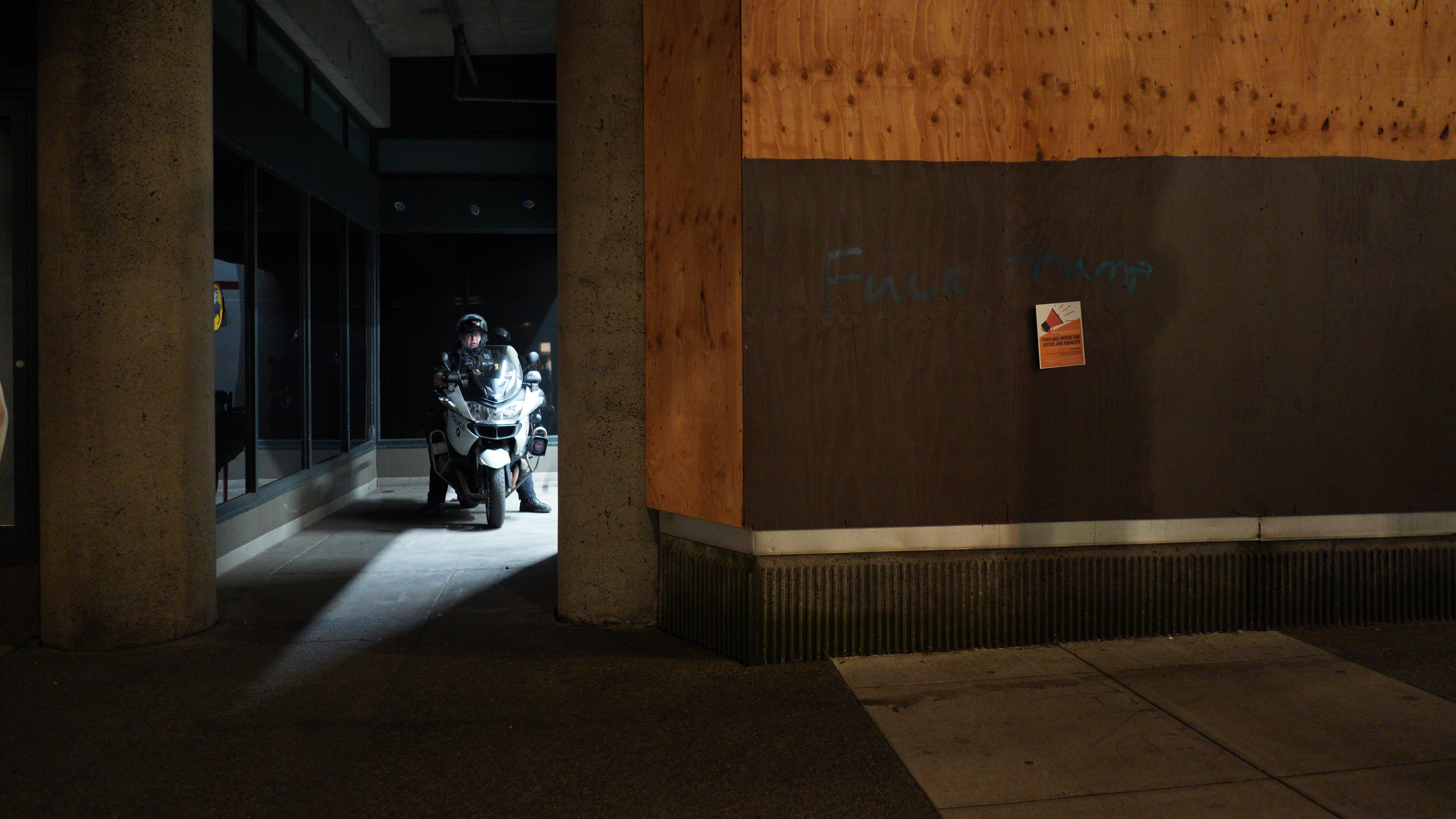After the fatal shooting of a protester who drove into Portland to tout President Donald Trump on Saturday night, Gov. Kate Brown this evening announced a coordinated law enforcement response to the increasingly volatile situation in Oregon's largest city.
"We all must come together—elected officials, community leaders, all of us—to stop the cycle of violence," Brown said in a statement tonight. "The right-wing group Patriot Prayer and self-proclaimed militia members drove into downtown Portland last night, armed and looking for a fight. Every Oregonian has the right to freely express their views without fear of deadly violence. I will not allow Patriot Prayer and armed white supremacists to bring more bloodshed to our streets."
Brown's involvement in the protests has been intermittent. Early on, she and Portland Mayor Ted Wheeler sparred over whether Brown should send the Oregon National Guard to Portland (eventually a small, unarmed group arrived). Later, Brown sent Oregon state troopers to replace Trump's federal police, but they left after two weeks.
Now, however, as Portland's protests occupy the front pages of national newspapers and much of President Donald Trump's social media utterances, Brown has stepped forward with a plan for how state, regional and federal partners can assist the Portland police to avert more deaths.
Related: One Person Shot to Death Amid Trump Caravan in Downtown Portland
Brown laid out a plan that appears to involve cooperation from two prosecutors whose responses to the protests have been very different: newly seated Multnomah County District Attorney Mike Schmidt, who has been loath to prosecute protesters, and U.S. Attorney for Oregon Billy Williams, who has demanded stronger action. (Schmidt took a stricter tone in a press conference this afternoon.) It also involves sworn officers from neighboring jurisdictions, who, Brown's statement alludes to, have not always been keen to help in Portland.
Here's what the governor proposes:
1. The Multnomah County District Attorney's Office will prosecute serious criminal offenses, including arson and physical violence.
2. The Multnomah County Sheriff's Office will work with system partners to hold individuals booked for violent behavior, and to ensure that there is adequate jail space to hold such individuals.
3. As done previously, Oregon State Police will detail personnel and resources to Portland to free up the Portland Police Bureau's investigative capabilities to arrest and charge those engaging in violent acts. OSP troopers will continue their standard practice of wearing body cameras to allow for the documentation of their activities.
4. The governor is asking Clackamas and Washington County sheriff's offices and the city of Gresham Police Department to support the Portland Police Bureau with personnel and resources to keep the peace and protect free speech.
5. Oregon State Police have offered over two dozen body cameras and associated evidence management to the Portland Police Bureau, and the bureau will evaluate their use. The city of Portland has agreed to indemnify Clackamas and Washington counties and the city of Gresham for law enforcement assistance. In addition, the mayor will seek financial resources to reimburse these jurisdictions for their support.
6. The United States Attorney and the Federal Bureau of Investigation will commit additional resources for investigation of criminal activity.
Finally, Brown said, she will pull together Black protesters and Wheeler "to discuss racial justice and police reform in the city of Portland."

